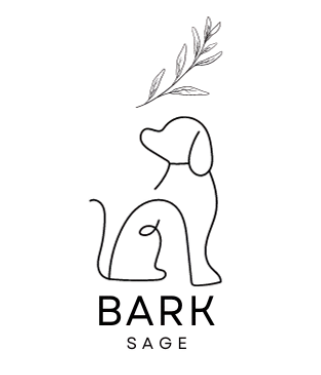Introduction
Why Beagles Are the Worst Dogs ?,In this candid exploration, we’ll discuss common complaints and challenges associated with Beagles, addressing the question. With their adorable looks and charming personalities, are often cherished as family pets. However, it’s essential to shed light on the less glamorous side of Beagle ownership.
Why Beagles the Worst Dogs?
1. Beagles Are Very Vocal
Beagles are known for their distinctive baying and frequent barking, which can be disruptive and challenging for owners seeking a quieter living environment.
2. Beagles Are Hunters
The strong hunting instinct in Beagles can lead to a range of behaviors, including following scents, digging, and a relentless pursuit of prey, making them challenging for owners without experience in managing hunting breeds.
3. Beagles Need a Lot of Exercise
The high energy levels of Beagles demand regular and vigorous exercise. Failing to meet their exercise needs can result in boredom and potentially destructive behavior.
4. Beagles Can Be Destructive
Beagles, when not provided with sufficient mental and physical stimulation, may resort to destructive habits such as chewing furniture, digging, and other forms of mischief.
5. Beagles Are Stubborn
The independent and sometimes stubborn nature of Beagles can pose training challenges, especially for first-time dog owners.

A Brutally Honest Review of Beagles
They Do Not Work for Free
Explore the quirkiness of Beagles when it comes to motivation, shedding light on their selective responsiveness to commands.
They Are Gross, Little Poo-Eating Beasts
Delve into the peculiar behavior of Beagles, known for their tendency to indulge in less-than-appetizing habits, including consuming their own feces.
They Love Being Stinky
Uncover the truth about Beagles’ love for rolling in unpleasant scents and their apparent disregard for staying clean.
They Believe Stealing Is Their Day Job
Explore the mischievous side of Beagles, highlighting their talent for pilfering items and the challenges it presents to owners.
They Bark. A Lot.
Discuss the vocal nature of Beagles, emphasizing their propensity for barking and how it can be a source of frustration for owners.
Characteristics of Beagles: 13 Common Complaints
Examine thirteen common complaints about Beagles, ranging from stubbornness and frequent barking to more peculiar behaviors like eating poop and obsessive licking.
While Beagles are beloved for their friendly nature and charming appearance, like any breed, they have characteristics that may become the source of complaints for some owners. It’s important to note that individual Beagles can vary, and not all Beagles exhibit the same behaviors. Here are 13 common complaints or characteristics associated with Beagles:
Howling and Barking:
- Beagles are known for their vocal nature. They have a strong instinct to howl and bark, which can become excessive if not properly trained.
Independent Streak:
- Beagles are independent dogs with a strong sense of scent. This independence can sometimes translate to stubbornness, making training a challenge.
Curiosity and Digging:
- Beagles are naturally curious and have a strong sense of smell. This can lead to digging behavior in the yard as they follow scents.
Food Motivation:
- Beagles are often highly food-motivated. While this can be useful in training, it may also lead to food-related mischief or begging.
Escape Artists:
- Beagles have a reputation for being skilled escape artists. Their strong sense of smell and curiosity can lead them to explore beyond boundaries if not properly secured.
Selective Hearing:
- Beagles may exhibit selective hearing, especially when they catch an interesting scent. This trait can make recall commands challenging.
Pack Mentality:
- Beagles have a pack mentality and thrive on social interaction. Some may experience separation anxiety if left alone for extended periods.
Shedding:
- Beagles have a short coat that sheds, especially during seasonal changes. Regular grooming can help manage shedding.
Eating Anything and Everything:
- Beagles have a strong sense of smell and may be prone to scavenging or eating anything they find, including items that are not safe.
While these characteristics may be perceived as challenges, many Beagle owners appreciate these traits as part of the breed’s charm. Proper training, socialization, and consistent positive reinforcement can help address some of these behaviors and ensure a harmonious relationship between Beagles and their owners. To learn more about distinctive bagl qualities check out our blog post: What are the Different Beagle Colors?: A Comprehensive Guide
Is a Beagle Right for You?
Consider whether the unique traits and challenges associated with Beagles align with your lifestyle and preferences as a potential dog owner.
Deciding if a Beagle is the right fit for you involves considering the breed’s characteristics, needs, and potential challenges in relation to your lifestyle and preferences. Here are some factors to consider when determining if a Beagle is the right choice for you:
Size and Energy Level:
- Beagles are a small to medium-sized breed with a moderate energy level. They require regular exercise to stay healthy and happy. If you enjoy outdoor activities and can provide daily walks and playtime, a Beagle might be a good fit.
Vocal Nature:
- Beagles are known for their vocal nature. If you live in a quiet environment or have close neighbors, be prepared for occasional howling and barking. Training and proper socialization can help manage their vocal tendencies.
Training Commitment:
- Beagles can be independent and stubborn, requiring consistent and patient training. If you’re committed to positive reinforcement training and providing mental stimulation, a Beagle can be a rewarding companion.
Scent-Driven Behavior:
- Beagles have a strong sense of smell and an instinct to follow scents. This can lead to digging and wandering behaviors. A secure yard and supervision during walks are essential to prevent escapes.
Social Nature:
- Beagles are social dogs that thrive on companionship. They may experience separation anxiety if left alone for long periods. If you have a flexible schedule or can provide company through another pet or a dog sitter, a Beagle may suit your lifestyle.
Grooming Needs:
- Beagles have a short coat that requires regular brushing to manage shedding. If you prefer a low-maintenance grooming routine, the Beagle’s coat may be a good fit.
Love for Food:
- Beagles are often motivated by food, which can be advantageous for training. However, it also means they may tend to overeat. Portion control and a balanced diet are important for maintaining a healthy weight.
Family-Friendly:
- Beagles are generally good with children and can make excellent family pets. Supervision is essential, especially with young children, to ensure positive interactions.
Hunting Instinct:
- Beagles have a strong hunting instinct, and some may chase small animals. If you have other pets, it’s important to introduce them carefully and provide proper supervision.
- Commitment to Exercise:
- Beagles thrive on physical activity. If you enjoy regular exercise and outdoor adventures, a Beagle can be a great companion for activities such as hiking and exploring.
- Financial Commitment:
- Owning any dog involves financial responsibilities, including veterinary care, food, grooming supplies, and other necessities. Ensure you are prepared for the financial commitment of caring for a Beagle.
Ultimately, the decision to bring a Beagle into your home should align with your ability to meet their needs, invest time in training, and provide a loving and stimulating environment. If you are dedicated to the unique traits of the breed and can accommodate their requirements, a Beagle can make a wonderful and affectionate addition to your family. To Find out the cost of bringing a beagle into your family can all be found here: How Much Is a Beagle?: Discover 6 Budget-Friendly Pet Supplies & DIY Solutions

Summary of 13 Common Complaints About Beagles
Summarize the key points discussed in the exploration of common complaints, offering a comprehensive overview for prospective Beagle owners
Beagles, while beloved for their friendly demeanor and charming appearance, are not without their characteristic quirks that can become common sources of complaints for some owners. Known for their vocal nature, Beagles are often prone to howling and barking, which may become excessive if not properly trained.
Their strong sense of smell and independent streak can lead to stubborn behavior and an inclination to follow scents, resulting in digging and potential escapes. Beagles’ love for food and curiosity may lead to scavenging, selective hearing, and a tendency to eat anything they find. The breed’s pack mentality and social nature may contribute to separation anxiety if left alone for extended periods. Additionally, Beagles are known to shed, and their potential for weight gain requires careful portion control. While these traits may pose challenges, many owners appreciate the Beagle’s unique characteristics and find that with proper training, socialization, and attention to their needs, these dogs make affectionate and loyal companions..
Reasons Why Beagle Are The Best Dogs
Tips For Beagle Owners
Conclusion
Acknowledge that while Beagles have their challenges, they can also be loving and loyal companions with the right care and training. Invite readers to share their experiences, challenges, and tips for dealing with the unique qualities of Beagles.
Leave a Comment
Encourage readers to leave comments, sharing their perspectives on Beagles and any additional insights into the joys and challenges of Beagle ownership. Foster a community where dog enthusiasts can connect and learn from one another.





Pingback: How Much Is a Beagle?: Discover 6 Budget-Friendly Pet Supplies & DIY Solutions - barksage.com